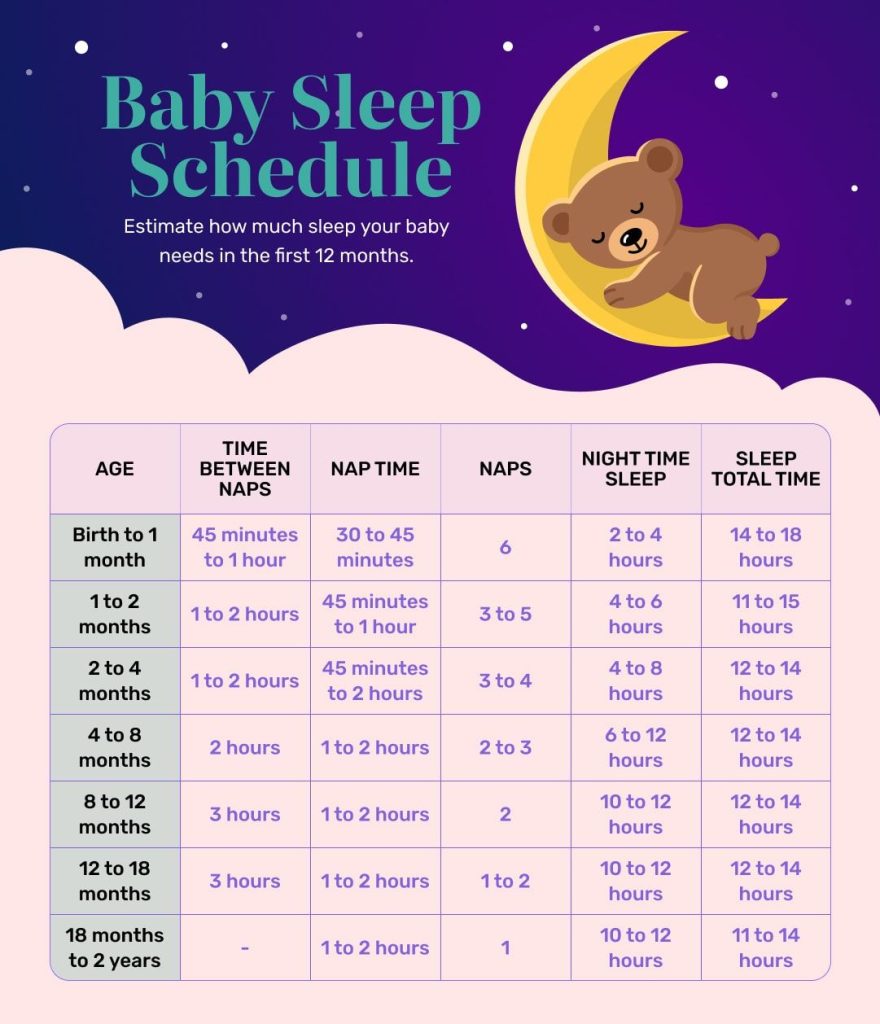Baby sleep regressions are caused by developmental milestones and changes in routine. These can disrupt their sleep patterns temporarily.
Baby sleep regressions often occur during key developmental stages. Around 4, 8, and 18 months, babies experience significant growth and development. These periods can affect their sleep. Changes in routine, such as travel or illness, can also contribute. During these times, babies might wake up more often or have trouble falling asleep.
Understanding these causes helps parents manage sleep regressions better. Consistent bedtime routines and patience are essential. Remember, sleep regressions are temporary and part of normal development. Stay calm and supportive to help your baby adjust and return to better sleep patterns.
Introduction To Baby Sleep Regressions
Baby sleep regressions can be puzzling for new parents. One night your baby sleeps well, and the next, they are wide awake. Understanding sleep regressions is key to helping your baby through this phase.
Common Signs
- Frequent night waking
- Shorter naps
- Trouble falling asleep
- Increased fussiness
- Clinginess and need for comfort
Typical Ages
| Age | Common Changes |
|---|---|
| 4 months | Developmental milestones, more awareness |
| 8-10 months | Crawling, standing, separation anxiety |
| 12 months | Walking, talking, new experiences |
| 18 months | Language explosion, independence |
| 2 years | Potty training, bedtime resistance |

Credit: www.lancastergeneralhealth.org
Developmental Milestones
Babies grow and change rapidly during their first years. These changes are known as developmental milestones. These milestones can affect sleep patterns. Parents often notice sleep regressions during these times. Understanding these milestones can help manage sleep regressions better.
Learning New Skills
Learning new skills can be exciting for babies. They might start crawling, walking, or talking. These achievements can disrupt their sleep. They may practice these skills at night. This can lead to frequent wake-ups.
Here are some common skills babies learn:
- Crawling
- Walking
- Talking
Babies might also experience separation anxiety. This can cause them to wake up more often. They need comfort and reassurance from their parents.
Growth Spurts
Growth spurts are another cause of sleep regressions. Babies grow a lot during their first years. These spurts can happen suddenly. During a growth spurt, babies may need more food. They might wake up more often to feed.
Common signs of growth spurts include:
- Increased hunger
- More frequent wake-ups
- Fussiness
Parents should be prepared for these changes. Understanding that growth spurts are temporary can help. Providing extra feedings and comfort can ease this period.
Environmental Factors
Understanding baby sleep regressions can be challenging for new parents. One of the key causes is environmental factors. These factors can disrupt a baby’s sleep patterns. Knowing what triggers these changes can help parents manage sleep regressions better.
Changes In Routine
Babies thrive on routine. Sudden changes can cause sleep disruptions. A new bedtime routine or different feeding times can confuse a baby. Consistency is crucial for their comfort. Try to keep the daily schedule the same. This helps babies feel secure and sleep better.
Travel And Vacations
Traveling can be exciting but challenging for baby sleep patterns. New environments can be stimulating. Different time zones can confuse their internal clocks. Babies may struggle to fall asleep in unfamiliar places. Bring familiar items like a blanket or toy. This can provide comfort and a sense of security.
| Environmental Factor | Impact on Baby Sleep | Tips to Manage |
|---|---|---|
| Changes in Routine | Disrupts sleep patterns | Maintain a consistent schedule |
| Travel and Vacations | Creates unfamiliar sleeping conditions | Bring familiar items for comfort |
Health And Wellness
Understanding the health and wellness of your baby is crucial. Health issues can significantly impact your baby’s sleep patterns. Factors like teething pain and illnesses are common culprits.
Teething Pain
Teething pain is a common cause of sleep regressions in babies. The emergence of new teeth can cause discomfort, making it hard for your baby to sleep. This discomfort can lead to frequent night awakenings.
You might notice your baby drooling more or chewing on objects. These signs indicate teething. To soothe your baby, consider using a teething ring or a cold washcloth. These can provide some relief and help your baby sleep better.
Illnesses
Illnesses such as colds, ear infections, and stomach bugs can disrupt your baby’s sleep. When your baby is sick, they might wake up more often and have trouble falling back asleep.
To help your baby, ensure they stay hydrated and comfortable. A proper sleeping environment can also aid in their recovery. Keep their room at a comfortable temperature and consider using a humidifier if they have a cold.
| Illness | Symptoms | Sleep Tips |
|---|---|---|
| Cold | Runny nose, cough | Use a humidifier, elevate the head |
| Ear Infection | Pain, fever | Consult a doctor, keep baby upright |
| Stomach Bug | Diarrhea, vomiting | Stay hydrated, offer bland foods |
Recognizing these health issues and providing the right care can help ease sleep regressions.
Sleep Associations
Understanding sleep associations can help explain why babies wake up. These associations are the conditions or actions your baby links with falling asleep.
Dependence On Props
Babies often develop a dependence on props to fall asleep. Props can include pacifiers, rocking, or certain sounds. Your baby may wake up when these props are missing.
- Pacifiers: Babies may cry if the pacifier falls out.
- Rocking: Babies may need rocking to fall back asleep.
- Sounds: Babies might wake up if white noise stops.
To avoid this, try to create a consistent sleep environment. Remove the props gradually so your baby can self-soothe.
Parental Interventions
Parental interventions can also affect sleep associations. Parents often rush in at the slightest noise. This can create a dependency on your presence.
- Soothing: Your baby may expect you to soothe them back to sleep.
- Feeding: Babies may wake up expecting a feeding session.
- Holding: Some babies need to be held to fall back asleep.
Try to let your baby self-soothe for a few minutes. Gradually decrease your interventions to foster independence.

Credit: www.pampers.com
Expert Tips For Managing Regressions
Baby sleep regressions can be tough for parents. Understanding how to manage them is key. Experts offer valuable advice to help navigate these challenging times. Here are two essential tips to consider.
Consistency Is Key
Consistency helps maintain a baby’s sleep routine. Stick to the same bedtime every night. This helps the baby know it’s time to sleep.
Use a consistent pre-sleep routine. This can include a bath, a story, or gentle rocking. The routine signals that bedtime is near.
Make sure naps are consistent too. Regular nap times help regulate the baby’s overall sleep pattern.
Create A Sleep-friendly Environment
A sleep-friendly environment is crucial for good sleep. Keep the room dark and quiet. Use blackout curtains if needed.
The baby’s room should be at a comfortable temperature. Not too hot, not too cold. A white noise machine can help mask outside noises.
A comfortable crib with a firm mattress is important. Remove any unnecessary items from the crib. This ensures safety and comfort.
When To Seek Professional Help
Baby sleep regressions can be tough on parents and babies. Knowing when to seek professional help can ease the stress. Sometimes, expert advice is necessary to address more serious issues.
Signs Of Sleep Disorders
Not all sleep issues are normal regressions. Watch for these signs:
- Excessive daytime sleepiness
- Loud snoring
- Breathing pauses during sleep
- Difficulty falling asleep
- Frequent night wakings
- Nightmares or night terrors
Consulting A Pediatrician
If you notice any concerning signs, consult a pediatrician. They can help identify and treat potential sleep disorders.
Here’s what to expect during a consultation:
- Detailed questions about your baby’s sleep patterns
- Possible physical examination
- Discussion of any underlying health issues
- Recommendations for sleep studies if needed
The pediatrician might suggest a sleep specialist. Professional help can make a significant difference.
| Signs | Actions |
|---|---|
| Frequent night wakings | Consult a pediatrician |
| Loud snoring | Consider a sleep study |
| Nightmares or night terrors | Seek professional advice |
Conclusion And Reassurance
Baby sleep regressions can be challenging. Understanding their causes helps parents manage them better. Here are some key points to keep in mind.
Normalcy Of Regressions
Sleep regressions are a normal part of baby development. They occur around common ages like 4, 8, and 18 months. These phases are temporary and usually last between 2 to 6 weeks. During this time, babies may wake up more often or have trouble falling asleep.
Regressions happen because of major developmental milestones. Learning to crawl, walk, or talk can disrupt sleep patterns. Growth spurts and teething also play a role in these sleep changes. Remember, your baby’s sleep will improve with time.
Encouraging Healthy Sleep Habits
Maintaining consistent sleep routines is crucial. A predictable bedtime routine helps signal that it’s time to sleep. This could include a warm bath, reading a book, or singing a lullaby.
- Keep the room dark and quiet.
- Use a white noise machine to soothe your baby.
- Ensure your baby is comfortable and safe.
During regressions, avoid creating new sleep associations. Rocking or feeding your baby to sleep can become a habit. Instead, try to encourage self-soothing techniques. Place your baby in the crib while they are drowsy but still awake.
Be patient and consistent. Regressions are tough, but they are a sign your baby is growing. With time and the right habits, your baby will sleep better again.

Credit: takingcarababies.com
Frequently Asked Questions
What Causes Sleep Regression In Babies?
Sleep regression in babies is caused by growth spurts, teething, developmental milestones, and changes in routine.
How Do You Break A Baby’s Sleep Regression?
Establish a consistent bedtime routine. Ensure the sleep environment is calm and dark. Offer comfort without creating new sleep associations.
What Milestones Cause Sleep Regression?
Milestones like crawling, walking, and teething can cause sleep regression. Separation anxiety and language development also contribute.
What Ages Are The Major Sleep Regressions?
Major sleep regressions typically occur at 4 months, 8-10 months, 12 months, 18 months, and 2 years.
What Is Baby Sleep Regression?
Sleep regression is a period when a baby suddenly starts waking up more often.
Conclusion
Understanding baby sleep regressions can help parents better manage these challenging phases. Identifying triggers and patterns is key. Patience and consistency often ease the transition. Seek professional advice if issues persist. With time and care, your baby’s sleep routine will improve.
Stay informed and supportive for smoother nights ahead.


